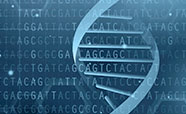Pharmacogenomics is the study of how genes influence patients' responses to drugs. This includes looking at how genetic differences contribute to side effects, or can even stop drugs working altogether.
We're researching how to tailor treatments to each patient. This will improve patient safety, and improve the effectiveness of drugs.
Our laboratories
Research at the Carney Centre for Pharmacogenomics is carried out by several collaborating groups:
Our current research projects
Genetic underpinnings of adverse drug reactions
Adverse drug reactions are a significant concern as they affect quality of life, negatively impact on treatment, and are a source of large costs to the health system.It is now clear that a proportion of serious adverse drug reactions arise because of differences in our genetic make-up.
We are working to understand these differences, by recruiting people who have suffered adverse drug reactions then studying their genomes for clues to explain why the reaction might have occurred. In particular, we are analysing serious drug reactions that have occurred with statins, antidepressants, and heart medications.
We have recruited over 130 patients to our “UDRUGS” biobank, and to date we have carried out a range of pharmacogenetic analyses for about a third of these participants. Dr Simran Maggo, the current Carney Centre Research Fellow, is playing a lead role in this project.
Molecular effects of mood disorder drugs
This project seeks to explore how drugs like lithium and valproic acid exert their therapeutic effects, and is the focus of PhD student Priyanka Sinha's research.
Ms Sinha is using a cell culture model from a type of brain cell important in mood disorders. After exposing the cells to each drug, we can examine how the pattern of gene expression is altered, and this gives us clues to important pathways that are modified by the drugs.
Novel methods for analysing pharmacogenes
We are developing new and more effective methods for exploring variation in the genes that are most relevant to drug metabolism and drug responses.
Our two main efforts in this regard focus on:
- Developing a very highly integrated (multiplexed) method for analysing many pharmacogenetic variants in multiple genes and multiple patient samples at once.
- Evaluating the utility of a tiny, novel “nanopore sequencing” device that allows the rapid analysis of long DNA molecules, with particular applications in pharmacogenetics and other areas of human genetic analysis.
We have recently developed a method for analysing a complex region of the human genome (called the HLA locus) which helps control immunity, and to which many drug hypersensitivity reactions can be traced.
In collaboration with Associate Professor Logan Walker from the Mackenzie Cancer Research Group, we have also used the nanopore DNA sequencer for analysing the BRCA1 gene, which contributes to inherited risk of breast cancer.


